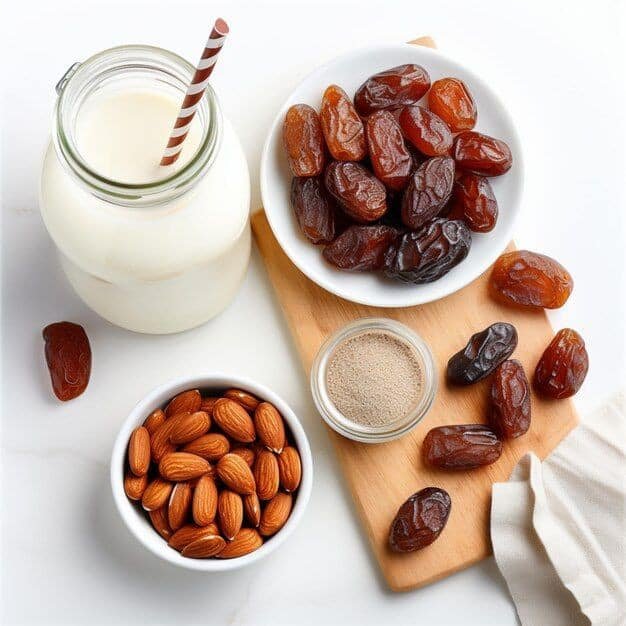Ramadan is a time of spiritual reflection, self-discipline, and devotion. However, long fasting hours can take a toll on your energy and hydration levels. Eating the right foods at suhoor and iftar can help maintain stamina, prevent dehydration, and keep you feeling your best throughout the month. This guide will help you make smart dietary choices with healthy eating tips for Ramadan.
Understanding Ramadan Nutrition Challenges
Fasting affects metabolism, energy levels, and hydration, making mindful eating essential. Without proper planning, common issues like fatigue, sluggish digestion, and dehydration can arise. Prioritizing nutrient-dense meals and hydration can help you stay active and energized.
Suhoor: The Foundation of Your Daily Nutrition

Suhoor is your body’s fuel for the day, so it should be well-balanced and packed with slow-digesting nutrients.
Read Also: Delicious & Nutritious Suhoor Ideas to Keep You Energized
What to Include in Suhoor:
Complex Carbohydrates – Provide lasting energy and prevent crashes
Protein-Rich Foods – Keep you full longer and support muscle function
Hydration-Supporting Ingredients – Help prevent dehydration throughout the day
Recommended Suhoor Foods:
- Whole grain bread or oatmeal – Rich in fiber and keeps you full longer
- Eggs or Greek yogurt – Excellent sources of protein
- Nuts and seeds – Provide healthy fats and energy
- Fruits like bananas or berries – Natural sugars and vitamins for a fresh start
Iftar: Breaking the Fast Mindfully
Iftar should be approached with balance to avoid overeating and sluggishness.
Smart Iftar Strategies:
- Start with dates and water – Quickly replenishes energy and hydration
- Eat slowly and in portions – Prevents bloating and discomfort
- Include a variety of food groups – Ensures optimal nutrient intake
- Limit fried and processed foods – Reduces digestive strain and energy crashes
Balanced Iftar Plate Composition:
¼ Lean Proteins – Chicken, fish, tofu, or legumes
¼ Complex Carbohydrates – Brown rice, quinoa, or whole grains
½ Vegetables and Fruits – Provides essential vitamins, minerals, and fiber
Healthy Fats in Moderation – Olive oil, nuts, or avocados for brain and heart health
Hydration Strategies for Fasting
Staying hydrated is essential to avoid fatigue, dizziness, and headaches.
Tips to Stay Hydrated:
Drink plenty of water between iftar and suhoor (aim for 8-10 glasses)
Avoid caffeine and sugary drinks, which can dehydrate you
Eat hydrating foods like cucumbers, oranges, and watermelon
Healthy Snack Ideas for Ramadan

Between iftar and suhoor, small snacks can help maintain steady energy levels.
Great Snack Options:
Nuts and dried fruits – A nutritious combination of fiber, protein, and healthy fats
Greek yogurt with honey – Supports digestion and provides lasting energy
Hummus with whole-grain crackers – A balanced mix of protein and complex carbs
Common Nutritional Mistakes to Avoid
Overeating at iftar – Leads to sluggishness and digestive discomfort
Consuming excessive sugary foods – Causes energy crashes
Neglecting hydration – Increases fatigue and headaches
Skipping nutritious foods – Can lead to nutrient deficiencies over time
Special Dietary Considerations
For Vegetarians:
- Opt for plant-based proteins like lentils, beans, tofu, and nuts
- Include dairy or fortified alternatives for calcium and protein
For Those with Dietary Restrictions:
- Choose gluten-free grains like quinoa or rice
- Use dairy-free options like almond or coconut milk
For Different Age Groups:
- Children – Prioritize easy-to-digest, nutrient-dense meals
- Elderly individuals – Focus on hydration, soft foods, and fiber-rich options
Conclusion
Ramadan offers a chance to reset your eating habits and focus on mindful nutrition. By making intentional food choices, staying hydrated, and avoiding common dietary mistakes, you can maintain your energy levels and overall well-being throughout the holy month.
Read Also: Thoughtful Ramadan Gift Ideas for Family & Friends 2025
Disclaimer
This article provides general nutritional advice. For personalized dietary recommendations, consult a healthcare professional or nutritionist.